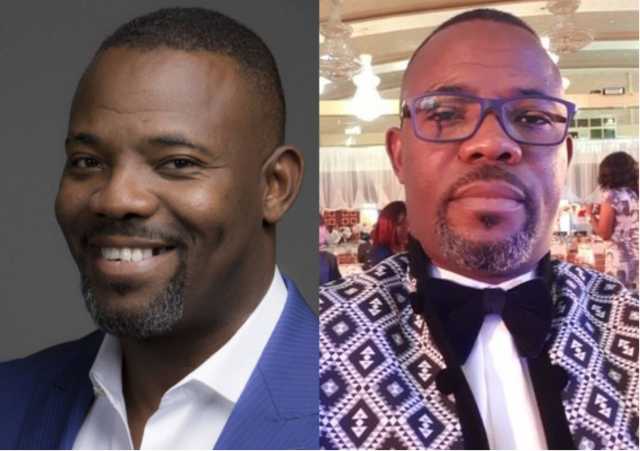Renowned Nigerian comedian and actor Okechukwu Anthony Onyegbule, popularly known as Okey Bakassi, has challenged contemporary marriage norms by advocating for polygamy as the most fitting marital structure for African societies. His bold stance, expressed during an appearance on the Honest Bunch Podcast, has reignited age-old discussions about traditional marriage practices in modern African society.
The veteran entertainer’s remarks have touched a nerve in a society grappling with evolving social dynamics and cultural identity. Speaking with characteristic frankness, Bakassi suggested that the widespread adoption of monogamy in African societies represents a departure from traditional values that may not serve the continent’s social fabric effectively. His argument centers on what he perceives as a prevalent pattern of superficial contentment in monogamous relationships, asserting that many individuals are merely maintaining appearances rather than experiencing genuine marital satisfaction.
During the podcast discussion, Bakassi delved into the complexities of modern relationships, questioning the practical implications of enforced monogamy in contemporary African society. He particularly emphasized the artificial nature of the distinction between polygamous and monogamous relationships, suggesting that the primary difference lies in timing rather than substance. His observation that monogamy simply requires sequential rather than simultaneous relationships raises thought-provoking questions about the nature of commitment and relationship dynamics in modern society.
The entertainer’s perspective challenges the increasingly globalized view of marriage, which largely promotes monogamy as the ideal arrangement. By suggesting that polygamy might better align with African cultural contexts, Bakassi has introduced a controversial counterpoint to prevailing social narratives. His comments have particularly resonated in Nigeria, where traditional practices often exist in tension with modern relationship expectations.
The timing of Bakassi’s statement is significant, coming at a moment when African societies are actively negotiating the balance between cultural heritage and contemporary social norms. His remarks have sparked discussions about the sustainability of imported social constructs versus traditional African practices, particularly in the context of marriage and family structures.
This discourse extends beyond simple relationship dynamics to touch on broader questions of cultural authenticity and the impact of Western influence on African social institutions. Bakassi’s argument suggests that the widespread adoption of monogamy might represent a form of cultural imposition that fails to acknowledge the nuanced social structures that have historically characterized African societies.
However, his stance has not gone unchallenged. Critics argue that advocating for polygamy oversimplifies the complexities of modern relationships and potentially undermines progress in gender equality. They contend that traditional practices should be evaluated in the context of contemporary social values and human rights considerations, rather than being automatically endorsed based on historical precedent.
The debate sparked by Bakassi’s comments reflects broader societal tensions between tradition and modernity in contemporary Africa. It raises important questions about the role of cultural practices in modern society and the extent to which traditional institutions can or should be preserved in an increasingly globalized world.
Sociologists and cultural commentators have noted that this discussion touches on fundamental questions about identity, authenticity, and social evolution in African societies. The controversy surrounding Bakassi’s statements highlights the ongoing challenge of reconciling traditional practices with modern sensibilities and legal frameworks.
The actor’s provocative stance has also drawn attention to the often-unspoken realities of relationship dynamics in contemporary African society. His suggestion that many people are “pretending” in monogamous relationships has prompted reflection on the gap between social ideals and practical realities in modern marriages.
As this debate continues to unfold, it underscores the complexity of navigating cultural identity in an increasingly interconnected world. Bakassi’s comments, while controversial, have succeeded in initiating an important conversation about the relationship between traditional practices and modern social structures in African society.
Whether one agrees with Bakassi’s position or not, his willingness to challenge established norms has contributed to a broader dialogue about the evolution of marriage institutions in Africa. As societies continue to grapple with questions of cultural authenticity and social progress, such discussions remain vital for understanding and shaping the future of relationship structures in African communities.



